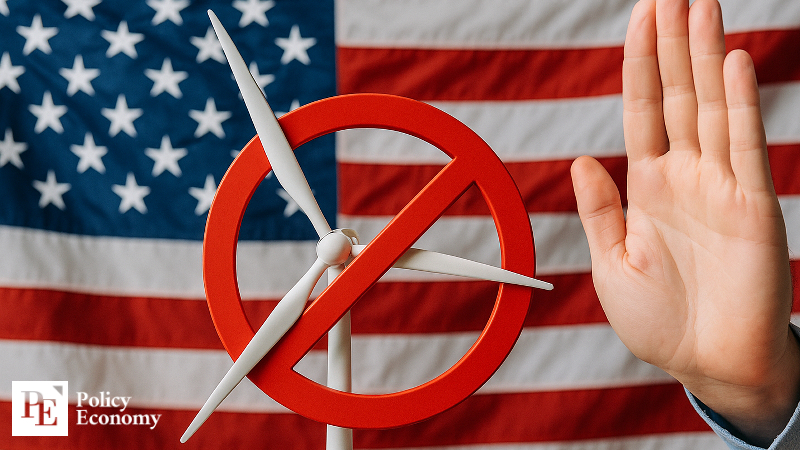Trump Administration Eyes Return to Fossil Fuels, Slashes Climate Budgets Amid Shutdown
Input
Modified
Trump Administration Cancels Large-Scale Climate Budgets in 16 States DOE and EPA Begin Cutting Green Programs and Rolling Back Policies “Green Terminology Banned” as DOE Takes Extreme Measures

The Trump administration has decided to slash climate-related budgets in 16 state governments. The move came immediately after the start of the federal government shutdown, targeting states aligned with Democratic climate policies and putting the brakes on the clean energy transition.
Trump Cuts Climate Funding on First Day of Shutdown
According to Reuters on the 2nd (local time), White House budget director Russell Vought announced on X that the administration is canceling about $8 billion in climate-related funding for 16 states, including California and New York. Specific details are expected to be released by the Department of Energy (DOE). U.S. media reported that, beyond California and New York, states such as New Jersey, Washington, Oregon, Massachusetts, Maryland, Illinois, Vermont, New Hampshire, Connecticut, Delaware, Hawaii, Colorado, Minnesota, and New Mexico will also see federal climate support withdrawn.
The decision came on the very first day of the federal government shutdown triggered by a budget impasse. Some analysts interpret the cancellations as a form of political retaliation, given that most of the affected states are Democratic-led and have been active in advancing climate policies. The White House, meanwhile, has accused Democratic leaders and progressives of holding up budget talks in exchange for funding healthcare services for undocumented immigrants.
Observers note that President Trump, who has long championed fossil-fuel-based energy policy, used the shutdown as an opening to block the clean energy transition. The canceled funds were reportedly earmarked for climate change mitigation, clean energy projects, and environmental protection programs. From his first day in office, Trump declared a “national energy emergency,” vowing to restore a coal-, natural gas-, and nuclear-centered energy system.
Climate Initiatives Losing Ground
The Trump administration’s latest move to slash climate-related budgets is not its first. Back in July, the Department of Energy (DOE) signaled plans to cut funding in the fiscal year ending September 30 for solar and wind power projects, as well as community energy programs supporting low-income households at the state and local level.
According to DOE documents obtained by the New York Times, the wind energy budget was set to fall from $137 million to about $30 million, while the solar budget would shrink from $318 million to about $42 million—nearly 90% reductions in both cases. Funding for community energy programs, which have supported heating cost relief, home insulation, and residential energy audits, was also expected to be almost entirely eliminated. Whether those cuts would be implemented, however, remains uncertain given Congress has yet to pass a new fiscal budget.
The administration’s push to sideline clean energy is also evident in regulatory changes. The Environmental Protection Agency (EPA) is pursuing the elimination of the Energy Star program, the blue-label certification found on household appliances that helps consumers identify energy-efficient products. The EPA notes that the program has saved U.S. households and businesses roughly $500 billion in energy costs over several decades and prevented an estimated 4 billion tons of greenhouse gas emissions.
Meanwhile, the Treasury Department is preparing to end tax credits for wind and solar projects and tighten restrictions on clean energy supply chains involving foreign companies, further underscoring the administration’s shift away from renewable energy support.

DOE Abandons Its Core Mission?
Reports have surfaced that the Department of Energy (DOE) has banned the use of terms such as “climate change,” “emissions,” “green,” and “decarbonization.” According to Politico on the 28th of last month, the DOE’s Office of Energy Efficiency and Renewable Energy (EERE) updated its internal list of prohibited words in an email to staff, which also included terms like “energy transition,” “sustainable,” “sustainability,” “clean energy,” “dirty energy,” “carbon footprint,” “CO₂ footprint,” “tax benefits,” “tax credits,” and “subsidies.”
The email instructed employees to “avoid terms that do not align with the current administration’s perspective and priorities.” The guidance applies not only to internal communications but also to external messaging, federal funding applications, reports, and briefings. Politico noted that this is the latest attempt by the Trump administration to deny or downplay the reality of climate change, stressing that many of the prohibited terms are central to the EERE’s mission itself.





















Comment